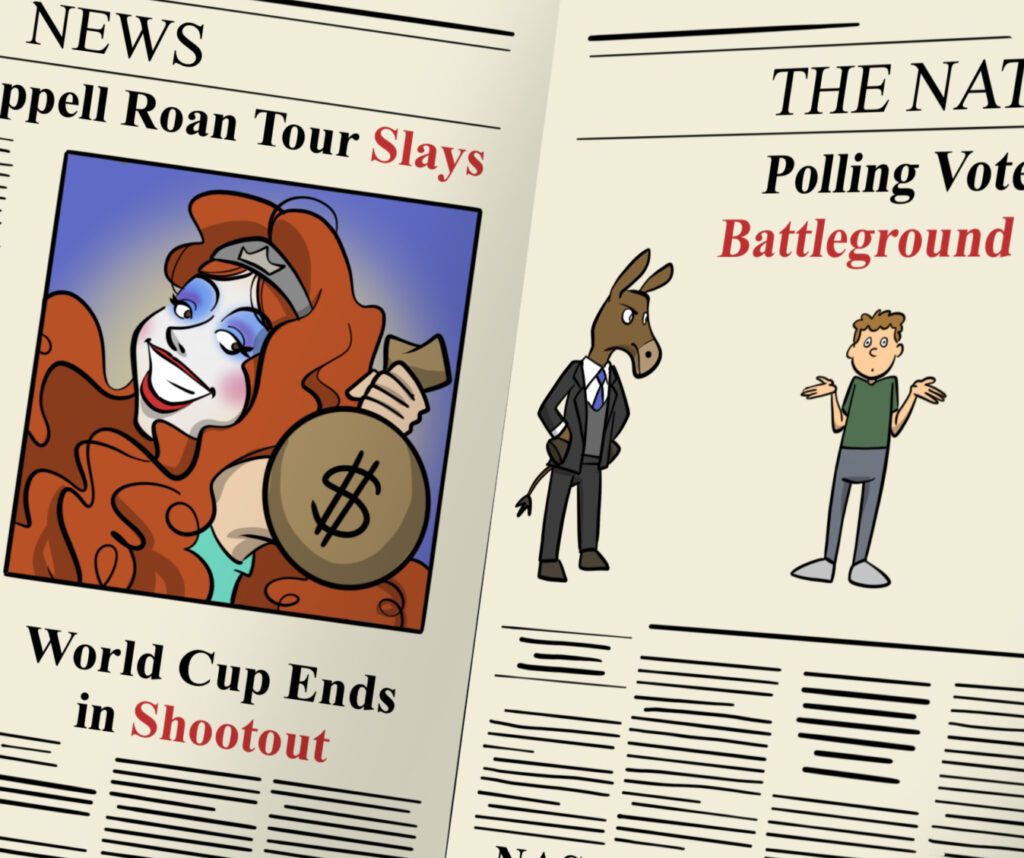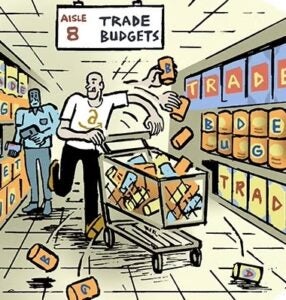Can’t Spell “Bad” Without “ad”
In March, OpenAI CEO Sam Altman told Ben Thompson of Stratechery that the company has no plans to pursue ad revenue, which he described as a “bunch of dimes.”
Obviously, those dimes add up. Equally obviously: OpenAI will almost certainly launch an ads business. And it will do so sooner rather than later.
But tech CEOs should acknowledge their advertising DNA. If only “to dispel a common misconception (really, a fallacious, superstitious tech dogma) that advertising is but one of many monetization strategies that are all equally capable of achieving optimal revenue,” as Eric Seufert writes at Mobile Dev Memo.
“Our business is not driven by advertising. We have an advertising team. It’s probably the part of the company I spend the least time on.” That’s Mark Zuckerberg from an appearance on the Colin and Samir YouTube show last month.
I mean … c’mon.
But when Apple CEO Tim Cook fields investor questions on ad revenue, he seems perplexed by the idea.
It isn’t just Silicon Valley, either. Learning to love (and accept) ad revenue is a lesson for publishers that pursue subscriptions or tangential models while their advertising stagnates.
Everyone’s embarrassed by advertising. None more so than those who earn tens of billions in ad dollars.
Poor Sports
Live sports broadcasts are opening up to programmatic. And sports leagues are embracing more forms of marketing that once would have seemed preposterous – think jersey patches or dynamically inserted broadcast signage in stadiums and rinks.
But a problem with this opening of primo sports media is that sports leagues themselves have proven painfully deficient in regard to quality control or discernment. New companies seeking legitimacy have flocked to sports advertising – often leaving chaos in their wake.
Six English Premier League teams were just alerted that they hold sponsorships with unlicensed betting websites that no longer operate in the UK, and that it’s illegal to promote them, Bloomberg reports.
The financial trading app Robinhood sponsors three NBA jersey badges, while Crypto.com sponsors the Philadelphia 76ers (it’s also the stadium sponsor for the former Los Angeles Staples Center, where the LA Lakers and other pro teams play).
But Temu has been the biggest Super Bowl advertiser of the past couple of years. And, uhh, FTX, the most notorious crypto-related fraud case, had a Super Bowl ad, a badge on all MLB umpires and sponsored the Mercedes Formula 1 team. Oh, and the Miami Heat had to hurriedly rename the FTX arena.
The Overviews Overthrow
It’s been a year since Google’s generative AI responses to many search queries, AI Overviews, entered our feeds.
Brands, and especially publishers, are not happy about the new feature.
Many publishers have reported a sharp decrease in traffic, often attributed to Google’s AI-generated summaries, since AIOs, as they’re called, appear atop the search results. MailOnline saw a 56% decline in click-through traffic as a result of the Overviews. Others report general feelings of betrayal.
For brands, the picture is slightly more optimistic.
Though some 80% of consumers say they now resolve their queries without clicking through to a single website at least 40% of the time, according to a Bain & Company report, sales haven’t taken nearly as much of a hit.
“Because the Overviews typically appear for users who are earlier in the purchasing process, the clients that have seen an impact on traffic haven’t necessarily seen a hit to sales conversions,” Charlie Marchant, CEO of agency Exposure Ninja tells Digiday.
Brands are “not waiting around,” says Jason Hartley, head of media innovation and trust at PMG. Many are doubling down on spending brand keywords and search budgets to remain visible.
But Wait! There’s More
Charter and Cox Communications agree to a $35 billion merger. [Axios]
Advertisers are already hungry for Super Bowl airtime. [Variety]
Meta files a motion to dismiss the FTC’s antitrust case against the company on the grounds that the commission has not proven its monopoly power. [Ars Technica]
Apple is, of course, placing misleading warnings on EU apps that don’t link to its App Store for payments. [The Verge]
Why Google should disclose YouTube revenue. [The Information]
You’re Hired!
Sparteo hires Louis-Etienne Balleydier as chief legal officer. [release]
Yahoo promotes Matt Sanchez to COO, and Ryan Spoon will be president of the newly formed Yahoo Media Group, which combines all of Yahoo’s media assets. [post]












